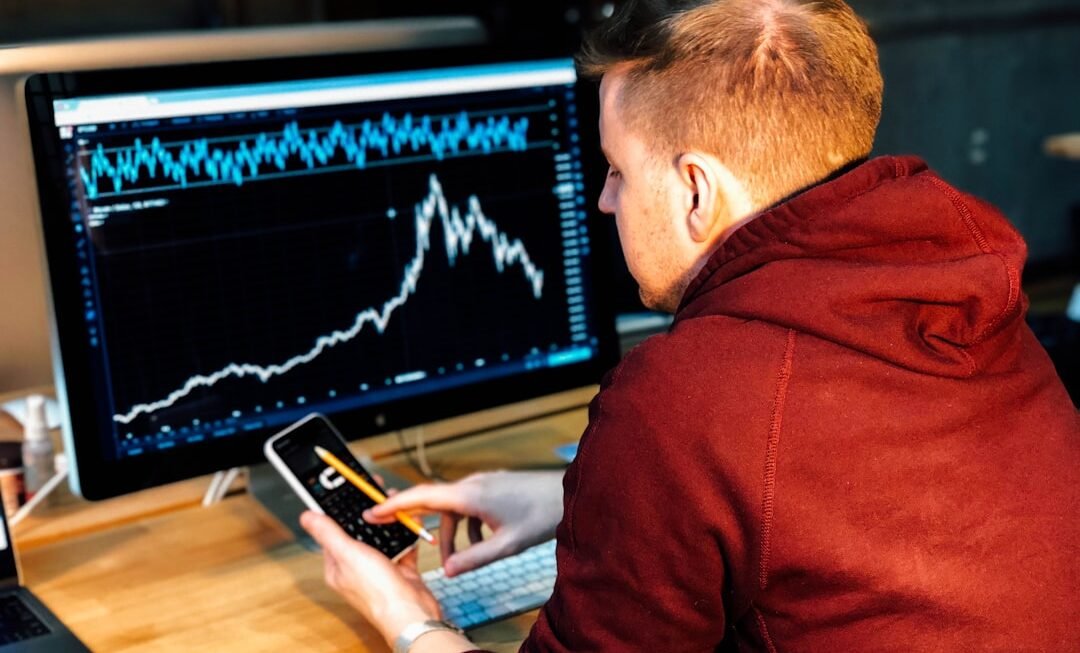In the ever-evolving landscape of finance, the stock market stands as a beacon of opportunity and risk. For many aspiring investors, the complexities of trading can be daunting. This is where stock market simulators come into play.
A stock market simulator is a virtual platform that allows individuals to practice trading stocks without the financial risk associated with real investments. By mimicking the dynamics of the actual stock market, these simulators provide a safe environment for users to learn, experiment, and develop their trading skills. The appeal of stock market simulators lies in their ability to democratize access to financial education.
They cater to a wide range of users, from complete novices eager to understand the basics of trading to seasoned investors looking to refine their strategies. With real-time data and a user-friendly interface, these simulators offer an engaging way to grasp the intricacies of market movements, stock valuation, and investment strategies. As individuals navigate through simulated trades, they gain invaluable insights that can translate into more informed decisions when they eventually enter the real market.
How to Use a Stock Market Simulator
Getting Started with a Stock Market Simulator
Using a stock market simulator is a straightforward process that begins with selecting a platform that suits one’s needs. Many simulators are available online, offering various features and functionalities. Once a user has chosen a simulator, they typically need to create an account, which may involve providing some basic information.
Navigating the Simulator and Making Trades
After setting up an account, users are often given a virtual portfolio with a set amount of simulated capital to invest. Once inside the simulator, users can start exploring different stocks and securities. They can research companies, analyze market trends, and execute trades just as they would in the real world.
Tracking Performance and Building Confidence
Most simulators provide tools for tracking performance, allowing users to see how their investments are faring over time. This hands-on experience is crucial for understanding how different factors influence stock prices and how to react to market fluctuations. By engaging with the simulator regularly, users can build confidence in their trading abilities and develop a deeper understanding of market mechanics.
Benefits of Using a Stock Market Simulator
The advantages of utilizing a stock market simulator are manifold. First and foremost, it provides a risk-free environment for learning. Users can experiment with various investment strategies without the fear of losing real money.
This aspect is particularly beneficial for beginners who may feel overwhelmed by the prospect of investing in actual stocks. The ability to make mistakes in a simulated environment allows them to learn valuable lessons without incurring financial losses. Additionally, stock market simulators often come equipped with educational resources and analytical tools that enhance the learning experience.
Many platforms offer tutorials, webinars, and articles that cover essential topics such as technical analysis, fundamental analysis, and portfolio management. This wealth of information empowers users to make informed decisions and develop a well-rounded understanding of investing principles. Furthermore, by tracking their performance over time, users can identify strengths and weaknesses in their trading strategies, enabling them to refine their approach as they progress.
Tips and Strategies for Using a Stock Market Simulator
To maximize the benefits of a stock market simulator, users should adopt specific strategies and tips that enhance their learning experience. One effective approach is to set clear goals before diving into trading. Whether it’s mastering day trading techniques or understanding long-term investment strategies, having defined objectives helps users stay focused and motivated throughout their practice sessions.
Another valuable strategy is to diversify investments within the simulator. By allocating virtual capital across different sectors and asset classes, users can gain insights into how various markets behave under different conditions. This practice not only broadens their understanding of market dynamics but also prepares them for real-world scenarios where diversification is key to managing risk.
Additionally, users should regularly review their trades and analyze what worked and what didn’t. This reflective practice fosters continuous improvement and helps users adapt their strategies based on past experiences.
Common Mistakes to Avoid When Using a Stock Market Simulator
While stock market simulators offer a valuable learning platform, users can still fall into common pitfalls that hinder their progress. One prevalent mistake is treating the simulator as a game rather than a serious learning tool. Some users may engage in reckless trading behaviors, making impulsive decisions without conducting thorough research.
This approach can lead to inflated confidence levels that do not translate into real-world trading success. Another mistake is neglecting the importance of emotional discipline. In real trading scenarios, emotions such as fear and greed can significantly impact decision-making.
However, in a simulated environment, users may overlook this aspect since there are no real stakes involved. To counteract this tendency, users should strive to simulate real-world conditions by setting limits on trades and adhering to predetermined strategies. By practicing emotional control in the simulator, they can better prepare themselves for the psychological challenges of actual trading.
Real-Life Applications of Stock Market Simulator
Individual Investors
For individual investors, simulators provide an opportunity to test new strategies before committing real capital. This trial-and-error process allows them to refine their approaches based on simulated outcomes, ultimately leading to more informed decisions when they transition to live trading.
Educational Institutions
Educational institutions also leverage stock market simulators as part of their finance curricula. By incorporating these tools into classroom settings, educators can engage students in experiential learning that enhances their understanding of financial markets. Students can participate in competitions or collaborative projects that simulate real-world trading scenarios, fostering teamwork and critical thinking skills.
Financial Advisors and Institutions
Moreover, financial advisors and institutions may use simulators for training purposes, equipping new employees with the skills needed to navigate complex market environments effectively.
Different Types of Stock Market Simulators
The landscape of stock market simulators is diverse, with various types catering to different user needs and preferences. Some simulators focus on providing a realistic trading experience with advanced features such as charting tools, technical indicators, and news feeds. These platforms are ideal for serious traders who seek an immersive experience that closely mirrors actual market conditions.
Conversely, there are simpler simulators designed for beginners who may feel overwhelmed by complex functionalities. These user-friendly platforms often emphasize educational resources and guided tutorials, making it easier for novices to grasp fundamental concepts without feeling intimidated. Additionally, some simulators offer mobile applications that allow users to trade on-the-go, providing flexibility for those who prefer to learn at their own pace.
Conclusion and Next Steps for Mastering the Market with Stock Market Simulator
In conclusion, stock market simulators represent an invaluable resource for anyone looking to navigate the complexities of investing with confidence. By providing a risk-free environment for practice and learning, these platforms empower users to develop essential skills that can lead to successful trading experiences in the real world. As individuals engage with simulators, they gain insights into market dynamics, refine their strategies, and build emotional discipline—key components for thriving in the competitive landscape of finance.
For those eager to master the art of investing, the next steps involve committing time and effort to regular practice within a stock market simulator. Setting clear goals, diversifying investments, and reflecting on past trades will enhance the learning experience significantly. As users continue to hone their skills in this virtual environment, they will be better equipped to transition into real-world trading with confidence and competence.
Ultimately, embracing the opportunities presented by stock market simulators can pave the way for informed investment decisions and long-term financial success.
FAQs
What is a stock market simulator?
A stock market simulator is a program or application that allows users to practice trading stocks without using real money. It simulates the real stock market environment and allows users to buy and sell stocks, track their performance, and learn about investing.
How does a stock market simulator work?
A stock market simulator works by using real-time or delayed market data to create a virtual trading environment. Users are given a certain amount of virtual money to invest in stocks, and they can track the performance of their investments over time.
What are the benefits of using a stock market simulator?
Using a stock market simulator allows users to gain experience in trading stocks without the risk of losing real money. It can help users learn about the stock market, practice investment strategies, and understand the impact of market fluctuations on their investments.
Are stock market simulators realistic?
Stock market simulators strive to replicate the real stock market environment as closely as possible, using real-time or delayed market data. While they may not fully capture the emotional aspect of real trading, they provide a realistic simulation of the market for learning and practice purposes.
Are there any costs associated with using a stock market simulator?
Many stock market simulators are available for free, while some may offer premium features or advanced tools for a fee. It’s important to research and compare different simulators to find one that meets your needs and budget.












